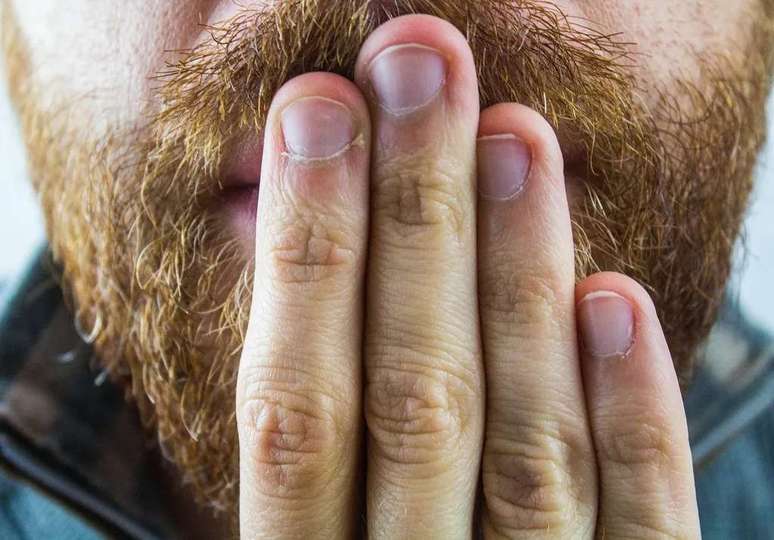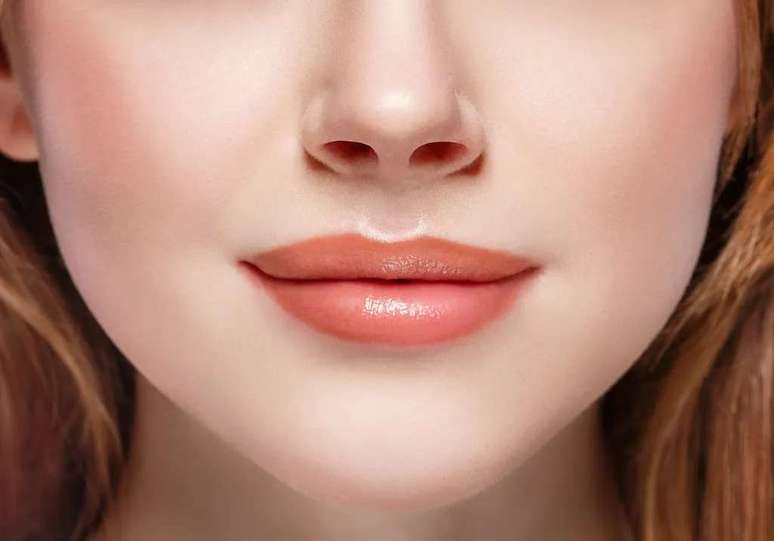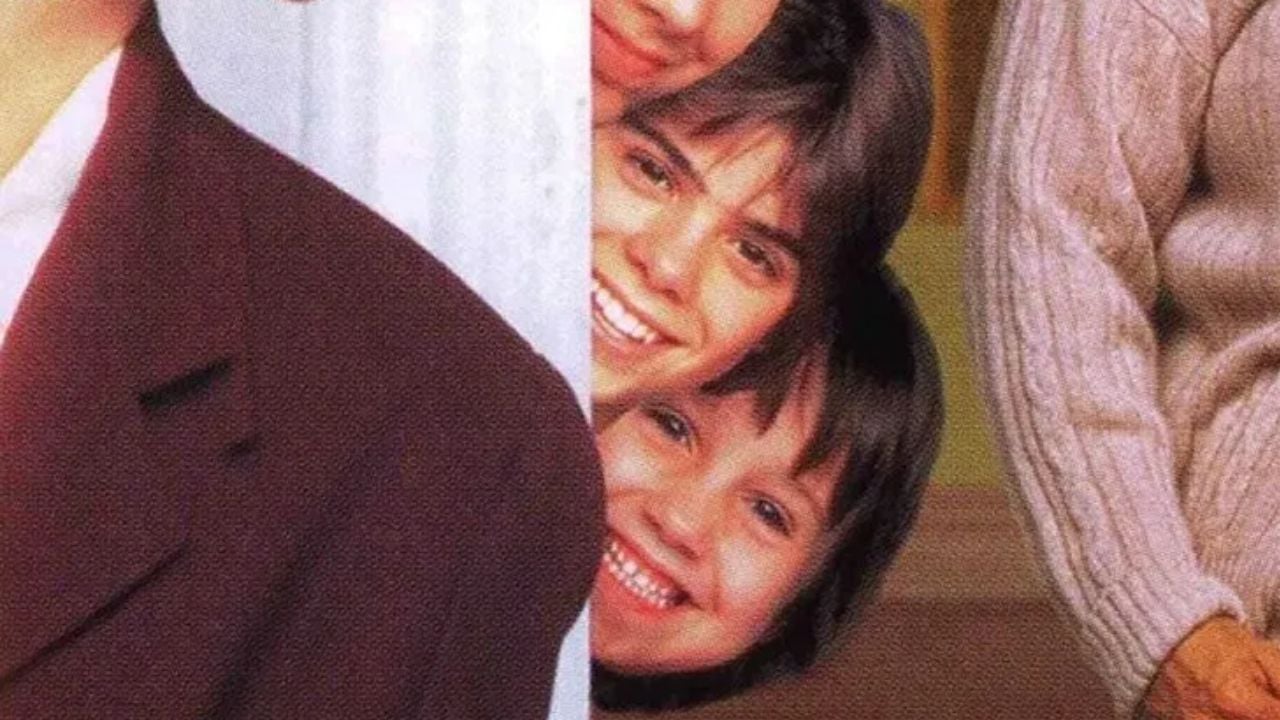Hiccups are caused by involuntary contractions of the diaphragm and closure of the glottis. You can stop hiccups with simple breathing exercises
Caused by various factors, such as drinking carbonated drinks, breathing “badly” or even eating too fast, hiccups are a completely normal problem. In most cases, the person stops hiccuping on their own after a few minutes. It’s only on a few rare occasions that the source of the hiccups is worth investigating – when it lasts too long, which could be a sign of some disease.
- 68 years old! Discover the story of the man with the biggest hiccups in the world
- 7 surprising facts about the respiratory system
Interestingly, hiccups have also been observed in healthy fetuses during prenatal ultrasound examinations, as pointed out by a study published in the scientific journal Obstetrics and Gynecology. This is just another indicator that hiccups are more common and natural than you might think.
Understand what a hiccup is
“Hiccups are an involuntary contraction of the diaphragm. — the muscle that separates the chest from the abdomen, and which plays a key role in breathing – followed by the sudden closure of the vocal cords,” explains Vincent Ho, a gastroenterologist and professor at Western Sydney University, Australia, in an article for the platform The conversation.

Following the spasms of the diaphragm and the closure of the glottis (where the vocal cords are located), people with hiccups make that characteristic “ic” sound an incalculable number of times, depending on the type of seizure. Some individuals also experience mild pain in the chest and throat due to pressure on the muscle.
While annoying, most hiccups are just irritating and don’t last long, says Ho. After 48 hours, the warning light goes on and attention is required for the condition. Even so, cases of people having truly lasting seizures are extremely rare in the literature, but they don’t go unnoticed when they do happen. They can even enter the Guinness World Records.
Until today, The record for the longest hiccup in history is held by the American Charles Osborne (1894-1991). The man would have started sobbing in 1922 while taking care of pigs, but he only stopped in 1990. It was 68 years, a very rare milestone with completely mysterious origins.
What causes hiccups?
Because it’s a common problem, hiccups can have a variety of causes. When you think of the benign version, one where the patient stops sobbing without knowing why, the most common sources are:
- Sudden changes in temperature;
- Drink carbonated drinks;
- Drinking too much alcohol;
- Laugh inside;
- Smoking and other practices that allow you to “swallow” air;
- Eating too much and too fast;
- State of excitement, anxiety or stress.
Now, considering long-lasting hiccups that don’t go away within the first 48 hours, the causes could be more complex, as pointed out in an article by mayonnaise clinic. In this case the possible origins could be:
- Lesions of the vagus nerve and phrenic nerve, associated with the diaphragm, which may be induced by laryngitis, excess gastric acid or cyst in the thyroid gland in the neck;
- Central nervous system disorders, caused by an infection (encephalitis), inflammation or tumor that disrupts control of the diaphragm muscles. People with multiple sclerosis can have flare-ups from this;
- Metabolism problems such as diabetes, kidney disease or electrolyte imbalance
- Drugs, such as sedatives and anesthetics, that relax the body excessively. Steroid drugs, such as anti-inflammatories, can also be responsible for hiccups.
How to stop a hiccups in 6 steps
There’s no foolproof technique to stop a hiccup, but Daniel Allan, a family physician at the Cleveland Clinic, shares six strategies that can fix most hiccups, involving breathing techniques and stretching exercises.

Below, check out six tips for containing a hiccup episode:
1. Hold your breath
“Holding your breath increases carbon dioxide levels [CO2] in the lungs and helps relax the diaphragm, which can stop the spasms and therefore the hiccups,” suggests Allan.
2. Paper bag technique
If the person cannot contain the hiccups by holding their breath, they can try a similar technique but using a paper bag, such as the one with loaves of bread. The idea is to continue breathing inside the bag, as if it were a mask, which will increase the inhalation of CO2, containing the crisis. Here, never use plastic bags, as they can cause suffocation.
3. Slow your breathing
Still in the field of breathing, another strategy is to breathe very slowly. It is worth inhaling the air for a count of 4 and then gradually “emptying” the entire lung. This technique is especially helpful for anyone who has had an episode of hiccups caused by anxiety or nervousness.
4. Drink water
Given the limits of the body, drinking cold water is a good strategy, especially if the cause of the hiccups is an inadequate diet. You can also gargle with water, which helps ease the seizure.
5. Stretching exercise
Another idea to stop hiccups is to lie down with your stomach facing the ceiling on a flat surface, such as the living room floor. Then the person should lift their knees up to their chest. This causes a slight pressure on the diaphragm, capable of resolving the crisis.
6. Get scared
The classic of classics when it comes to ending a hiccup: catching a horrible scare. This is really effective, but it has a problem. To work, the scare has to be genuine, for real, which is almost never possible, even more so when you expect it.
| If the hiccup does not go away spontaneously and lasts a long time, it is recommended that the person seek medical attention, as the condition may indicate other complications. |
Source: The conversation, Obstetrics and Gynecology, mayonnaise clinic AND Cleveland Clinic
Trending on Canaltech:
- AI finds 3 all-natural anti-aging compounds
- Lonely people respond to social interactions in different ways.
- Odin’s father confirms Thor’s true purpose at Marvel
- 10 Sci-Fi Movies That Predicted Today’s Technologies
- The submarine lost in search of the Titanic is driven by the R$ 300 Logitech controller
- Huntingtons | Study reveals how Alzheimer’s disease begins
Source: Terra
Rose James is a Gossipify movie and series reviewer known for her in-depth analysis and unique perspective on the latest releases. With a background in film studies, she provides engaging and informative reviews, and keeps readers up to date with industry trends and emerging talents.


![Everything starts here: What are you waiting for on Tuesday, July 22, July 22, 2025 [SPOILERS] Everything starts here: What are you waiting for on Tuesday, July 22, July 22, 2025 [SPOILERS]](https://fr.web.img2.acsta.net/img/52/4a/524a493b6d4b1233fce62af9a6caf759.jpg)




